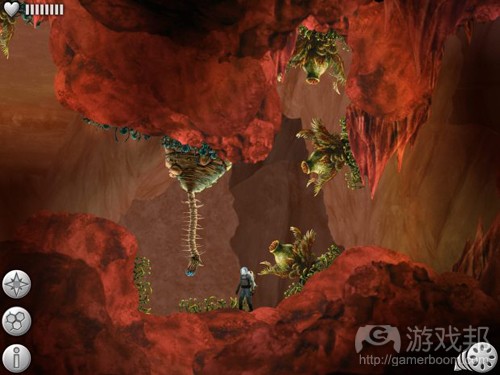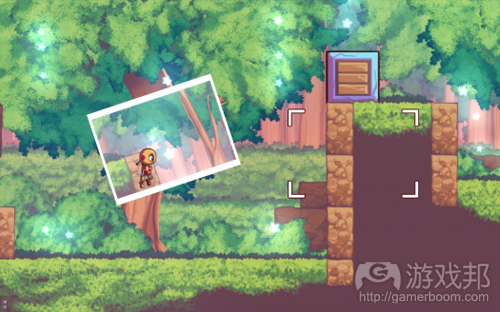列举AAA发行商可向独立领域借鉴的经验
作者:Colin Campbell
之前我们曾发布了一篇关于独立游戏开发者过去所收获经验的文章,现在要反过来问问AAA游戏发行商在过去一年中可向独立领域学到哪些东西。
接受访问的独立开发者的普遍共识就是,大型发行商从未真正参透晦涩难懂的“独立精神”。这并不是因为独立领域有多复杂,而是因为大型游戏开发商是以不同方式立业,业务规模也截然不同。
尽管2012年可以算得上独立游戏年,但甚少独立游戏获得足以令AAA发行商瞩目的那种商业成就,可这并不妨碍独立开发者们为整个游戏行业提供大量有趣见解:
以更少的成员推动创新
《Waking Mars》开发者Randy Smith表示,“我暂时还不觉得行业巨头会向独立团队借鉴多少经验。但可以肯定的是,他们已经意识到独立开发者可以用更少的人做出令人称奇和创新的项目,而大型AAA工作室的某个大手笔项目可能就有多达500号人为其服务,这真是不可思议。”
“大型游戏发行商也是移动和休闲领域的重磅竞争者,但多数时候是重塑了原来的行业准则。独立游戏与AAA游戏看似两个不沾边的领域——AAA游戏还在继续发展壮大,而独立领域则不断探索无需大量建模和着色器而提升游戏质量的途径,这两者在整个游戏生态圈中都发挥着重要作用。”
尊重杰出的人才
《Dust:An Alysian Tail》开发者Dean Dodrill认为大型公司应该善待杰出人才。“我希望大型公司学会尊重他们的创意人才。大型工作室仍充满大量最具才华的成员,但他们却并没有施展才能的空间。”
“AAA游戏仍然最为盈利,但这些也是高成本高投入换来的收成。随于许多工作室和发行商每况愈下的情况,我真心希望他们不要再重走老路,只着眼于少数游戏题材,而是看看独立领域所发生的新动向。”
分散风险
曾在2K团队为《生化奇兵》效力的开发者Steve Gaynor(游戏邦注:目前正在The Fullbright Company参与开发《Gone Home》)表示,独立开发者已经证明有许多不同方法可处理风险。“如果他们肯向独立开发者学习,我认为AAA游戏还会更赚钱,以小博大,用更少成员的团队,分散他们的阵容,让他们的员工更投入于自己参与的项目。”
“我认为他们应该给自己的开发者松绑,给予他们更多自主权,充分利用社交媒介的影响力,允许玩家与开发者建立个人联系。我认为他们应该从传统题材中解脱出来,给予玩家真正的新体验,找到新方向而不是重复挖掘已知的领域。”
《Dear Esther》开发者Dan Pinchbeck补充道,“在更多可产生回报的游戏中进行更少的投入,也不失为一个可行的商业模式,这还能分散投资风险。如果你在一系列游戏中分散风险,就算其中一个失败了,也还有其他项目可能获得成功。如果你把所有的鸡蛋放到同一个篮子,那就只能寄希望于获得好运,并且它可能成为一个让你不断投入的无底洞,不断返功直到项目终于可见天日为止。”
“过去两年已经证明,低成本项目还是有可能创造理想的回报(即使投入的营销预算也很少)。你可能无法在电视投放广告,或者占有足够的零售市场,也可能不像《使命召唤》那么吸金,但你却并不需要投入像《使命召唤》那种高额成本,而这也让你获得了许多创意自由。这是一个很棒的理念。所以希望他们能够加强对小型团队的投入意识,并适当放手让他们自己主导项目。”
关注独立型商业模式
《Snapshot》开发者Kyle Pulver指出,THQ最近进入了传统上由独立开发者专攻的领域,“大型游戏发行商尝试使用独立领域的方法这种现象在Humble Bundle并不罕见。THQ已经转向‘按需付费’的销售模式,虽然这可能与他们当前的财务状况有关,但我认为任何大型发行商或工作室都可以从独立领域的商业和创意思维中学到许多东西,反之亦然。”
在AAA领域中进行试验
《Super Time Force》开发者Nathan Vella表示,“我认为各种开发商都已经看到独立游戏领域的发展,这已足以证明独立领域确实值得大家学习,有些大型开发商已经开始借鉴他们的经验。Bethesda的‘Skyrim Jam’就是大型开发商积极向独立领域取经,并且取得显著成效的绝佳典型”。
不要生搬硬套
《The Binding of Isaac》和《超级食肉男孩》设计师Edmund McMillen表示,大型发行商无法从独立领域学到什么。“许多大型游戏发行商都在试图破解独立开发者的成功之道,但都没有得到正确的结论。这并非大型工作室可以复制的模式,因为独立开发者相比大型团队的优越性就在于此——他们本身并非大型团队,他们并不需要庞大预算来维续成功,他们可以自由承担风险,并通过作品真诚表达内心想法,他们有试验和即兴创作的自由。”
“独立开发者有明确的主张,他们的游戏代表自己的理念,不会轻易受到追求销售额的大人物的摆布,而这也正是大型主流工作室无法实现的目标。”
思考“独立”的含义
《Spelunky》开发者Derek Yu认为大型工作室从独立领域可学到的最重要一课就是,“这两个领域的成员很难了解对方,但大型公司的开发者却可以在独立领域看到许多发展潜力——每年都有越来越多人跳槽到独立领域。”
“对我来说这真的足以说明独立领域的影响力。有许多人讨论‘独立’所代表的意义以及我们究竟是否需要这些标签的问题,但最重要的是,总有些人加入‘独立’行列并融入一个富有活力的社区,它让人们更有勇气追求更快乐的生活。”
游戏邦注:原文发表于2012年12月30日,所涉事件及数据以当时为准。(本文为游戏邦/gamerboom.com编译,拒绝任何不保留版权的转载,如需转载请联系:游戏邦)
What AAA can learn from indies — according to indies
December 30, 2012
Yesterday we asked some leading indie game developers about the lessons they had learned in the past year. Today, we ask what — if anything — big triple-A publishers could have learned from the indie game community in the last 12 months.
The indies we spoke to generally pointed out that big publishers can never truly attain the elusive “indie spirit.” That’s not meant as an affront, but the fact is that large game makers are set up in different ways and work to different scales.
And while indie games have enjoyed a very good year, it’s rare for an independent game to achieve the sort of financial success that would muster a flicker of interest among triple-A publishers, who increasingly are about going big or going home.
Still, small independent game developers offer plenty of interesting insights into the overall game development ecosystem. Here are some of the takeaways.
Innovate with fewer people
Randy Smith is the developer of Waking Mars. He says, “I don’t see much evidence that the industry proper is taking lessons from indie teams. It’d be nice to say they realize you can do amazing and innovative things with fewer people, but the truth is the larger triple-A studios are staffing up to 500 people on a big project, which is mind-blowing.
“The large game publishers are also heavy contenders in the mobile and casual space but mostly by refining existing formulas. It just seems like the two worlds don’t overlap much yet — triple-A just keeps evolving toward bigger and fancier, whereas indies are discovering and remembering how games can be high quality without a mountain of polygons and shaders. Both serve important roles in the overall ecosystem.”
Respect the talented individual
Dean Dodrill, creator of Dust: An Alysian Tail, believes things might improve for talented individual within large corporations. “I would hope that large companies learn to respect their creative talent. The most talented individuals out there remain at large studios, but they aren’t given the freedom to stretch.
“The big money still comes from triple-A titles, but those are also the costliest risks. And with the large number of studios and publishers going under, I would hope they’d stop chasing the same few genres and look at what’s happening in the indie space.”
Spread the risk
Steve Gaynor, who worked on the triple-A BioShock series at 2K, is now working on Gone Home with The Fullbright Company. He says that indies have shown that there are different ways to approach the problem of risk. “If they were learning from indies, I would think that triple-A would be making more, smaller bets with more, smaller teams of developers, to diversify their lineups and get their employees more invested in what they’re working on.
“I’d think they would be letting their developers off the leash more, taking advantage of the huge influence of social media, allowing players to connect personally with the people making the games. I’d think they’d be branching out from traditional genres more and investing in giving players truly new experiences, to find new ways to stay relevant instead of burrowing deeper and deeper into known territory.”
Dan Pinchbeck, creator of Dear Esther with thechineseroom adds, “It is as valid a business model to spend less on more games that all make a good return and spread the risk of that investment. If you spread the risk across a number of games, then if one flops, you’ve mitigated that loss by the successes. If you back one title only, it’d better be damn good, and you can end up having to keep sinking money into it, polishing and polishing that turd until it gleams in the sunlight.
“The last couple of years have proved you can make a really good return on a lower budget game, even with a tiny marketing spend. You might not have billboards and TV ads and retail shelf-space, and you might not make a gazillion dollars like Call of Duty, but you’re not spending Call of Duty money, and that buys you a lot of creative freedom as well. That’s pretty cool, and it’s good business sense. So hopefully they’ll continue to develop the understanding that investing in smaller teams, and then staying pretty hands-off and letting them do their thing is smart business.”
Pay attention to indie-friendly business models
Kyle Pulver, creator of Snapshot with Retro Affect points out THQ’s recent foray into an area traditionally reserved for indies. “Strangely enough the biggest example of big game publishers trying a recipe from the indie scene can be found right now at Humble Bundle. THQ has jumped on board with a massive pay-what-you-want sale, and although that might be directly related to their current financial situation, I think any big publisher or studio can learn a lot from what indies are doing in both commercial and creative spaces, just as indies can learn from the big studios.”
Experiment within AAA
Nathan Vella created Super Time Force (pictured at top) with Capybara Games. He says, “I think developers everywhere see the growth of the independent games movement as validation of experimentation. This is something that everyone can learn from, and some large developers have already started leveraging. Bethesda’s “Skyrim Jam” [YouTube] is a perfect example of large-scale devs applying this in a super positive way and seeing ridiculously positive results.”
Don’t try to be ‘indie’ if you’re not
The Binding of Isaac and Super Meat Boy designer Edmund McMillen says large publishers are learning “nothing” from indies. “A lot of large game publishers try to figure out what indies are doing right and come to all the wrong conclusions. It’s not something you can replicate in a very large studio because what indies have over large teams is just that, they aren’t large teams, they don’t have huge budgets that require great success to continue, they have the freedom to take big risks and speak honestly through their work, they have the freedom to experiment and improvise.
“Indies have a very clear voice,” he adds, “their games represent who they are and aren’t muddied by the control of their many bosses telling them what they should do to make their games sell more copies. Indies are individuals, and that’s something large mainstream studios can never be.”
Think of what ‘indie’ means
Derek Yu, maker of Spelunky, believes the biggest lesson might be learned by individuals working within large organizations. “Beyond a certain size I think it’s hard to understand one another,” says Yu. “It’s clear, however, that individuals within those large companies are seeing a lot of potential within the indie scene — it seems like each year more and more are taking the leap themselves.
“And that really highlights the importance of the word ‘indie’ to me. There’s been a lot of discussion around what it stands for or whether we need the label at all, but at the end of the day, it’s great that someone can look up ‘indie’ and discover a vibrant community of people that they may fit in better with. It emboldens people to take a chance on being happier.”(source:indiegames)









































 闽公网安备35020302001549号
闽公网安备35020302001549号